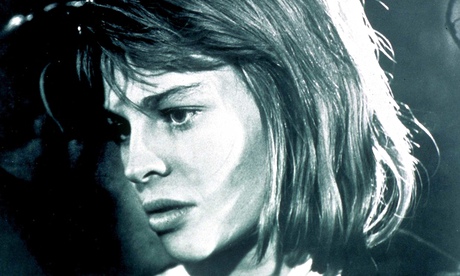
There are the role models we want, and the role models we get lumbered with. If you'd asked me as a teenager whether I wanted to be Billy Fisher from the 1963 film Billy Liar, I'd have said no. But that didn't mean this smartarse fantasist didn't act as an enabling soulmate who aided and abetted my bedroom-ridden years of angst and procrastination, years that I can't say have ever truly come to an end.
Stradhoughton, a fictional Yorkshire town, the start of the 60s. Billy (Tom Courtenay) is lingering in bed, wishing away his humdrum surroundings and his mother's repeated calls to the breakfast table by fantasising that he is the beloved revolutionary leader of a land called Ambrosia. He interrupts his own reverie to muse that this is a day of important decisions: he will start writing his novel and he will start getting up in the mornings. He looks at his watch and quickly postpones the second of this resolutions. The day takes on a familiar flavour.
This won't do as a role model. This won't do at all. Vair, vair unsatisfactory, as Billy's undertaker employer Mr Shadrack (Leonard Rossiter) would say. Billy knows that, which is why he has a role model of his own, one that I've always shared with him, the kind I actually want. Sharing victory salutes with President Fisher at the start of John Schlesinger's adaptation of Keith Waterhouse's novel is the imagined loyal Ambrosian foreign secretary, played by Julie Christie, who bears a strong resemblance to Liz from Stradhoughton. We don't see her again for a while. But when we do, it's quite an entrance.
Reading on mobile? Click here to view
The future is an ambiguous character in Billy Liar. It's the postwar municipal dreaming of demolishing old buildings and opening up supermarkets. It's Shadrack's absurd implementation of two-way radio technology in the firm's hearses, and his predictions of a world in which everyone is buried in plastic coffins. But there's another future that only the town's dullards, the ones who Liz says "aren't worth it", snigger at: personal liberation: the 60s. When Liz is back in town, everything changes and Schlesinger lets you know it with style. The soundtrack switches to jazz and we're into a miraculous montage of her skipping through the streets, puffing on a cigarette, pulling faces in the shiny C&A plaque, literally dancing to own beat. Her handbag is the only thing that seems to be swinging in 60s Stradhoughton.
Liz is one of three women who Billy is stringing along, but the only one he really gives a damn about. She's at once the only one who understands him and his polar opposite. When the small-minded people in the town drive her mad, she doesn't just turn around and fantasy-machine-gun them – she gets out. That might generally just mean hitching a ride to Doncaster or working at Butlin's for a bit, but she's also on board with the idea of escaping to London, where Billy is kidding himself and everyone else that he has the offer of a job writing jokes for the comedian Danny Boon. But for Liz, it's not just an idea. Actually doing what you want to do is a terrifying prospect for Billy, best kept at bay with lies and trips to Ambrosia. When Liz asks what's stopping him just going to London right there and then, he says it's more difficult than that. No it isn't, she says, it's easy: "You get on a train and four hours later there you are in London".
Actually, it isn't as easy as that. Billy, caught between his grammar school education and the world of his family, hasn't found a way to cut himself free, other than by making smart remarks to them and feeling guilty about it afterwards. It's understandable why he feels trapped in his bedroom fantasy world, why the devil on his shoulder will always be saying: "What the hell makes you think you can make it in London?" Growing up middle class on the gold-paved streets of south-east London, I could see we weren't the same as each other. But I also believed that if Billy had had an upbringing just like mine, he'd have found a worse excuse not to do things.
So I felt justified in wanting to be Liz just as much as he did. "When are you going to do what you want to do, Nick?" "Soon, as soon as I manage." "Why don't you do it now?". Now: the scariest word in the English language.
Watching Billy Liar again, it strikes me there are pretty good reasons why he doesn't get on that train. Beyond the trappings of class, his grandmother has just died. His mother says: "We don't say much, but we need you at home, lad". Which perhaps makes Liz a less straightforwardly positive role model for Billy. But she'll do just fine for me.
• Why I'd like to be ... Linda Fiorentino in The Last Seduction
• Why I'd like to be ... Val Kilmer in Tombstone
• More from the Role Models series

